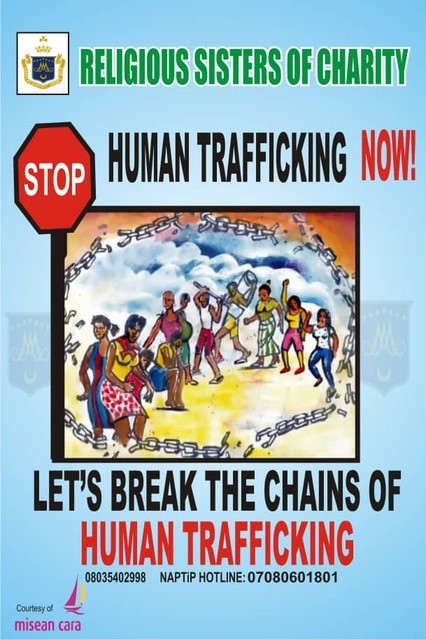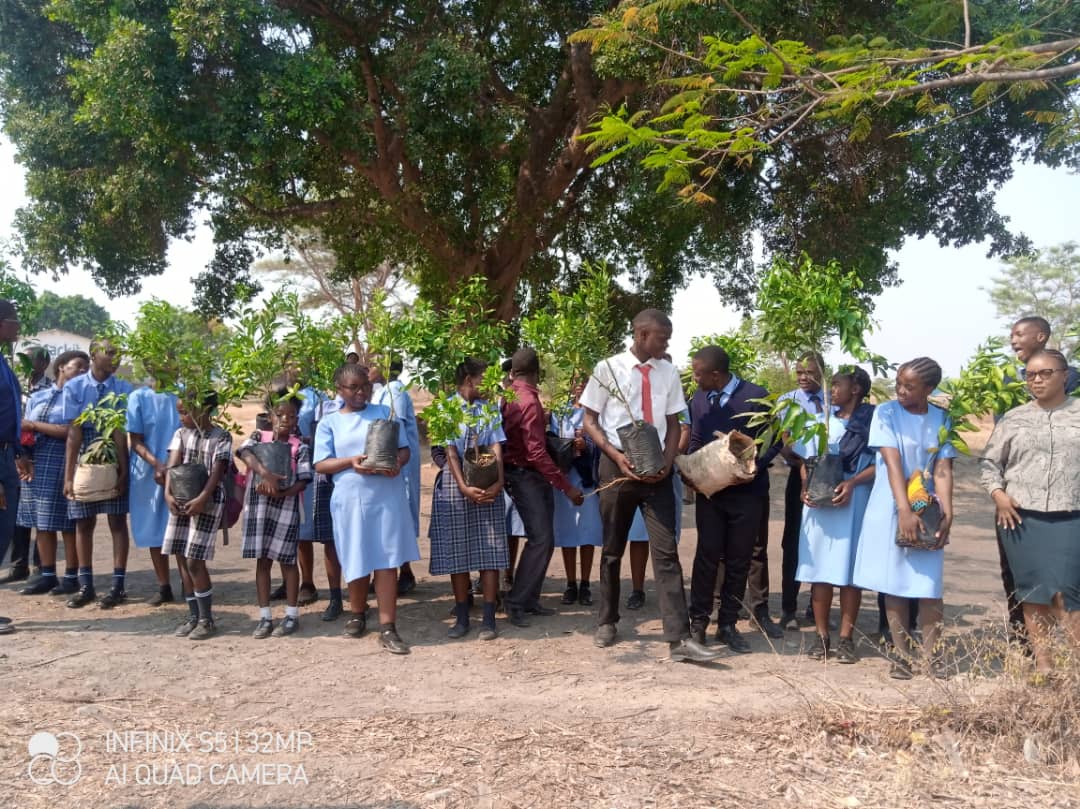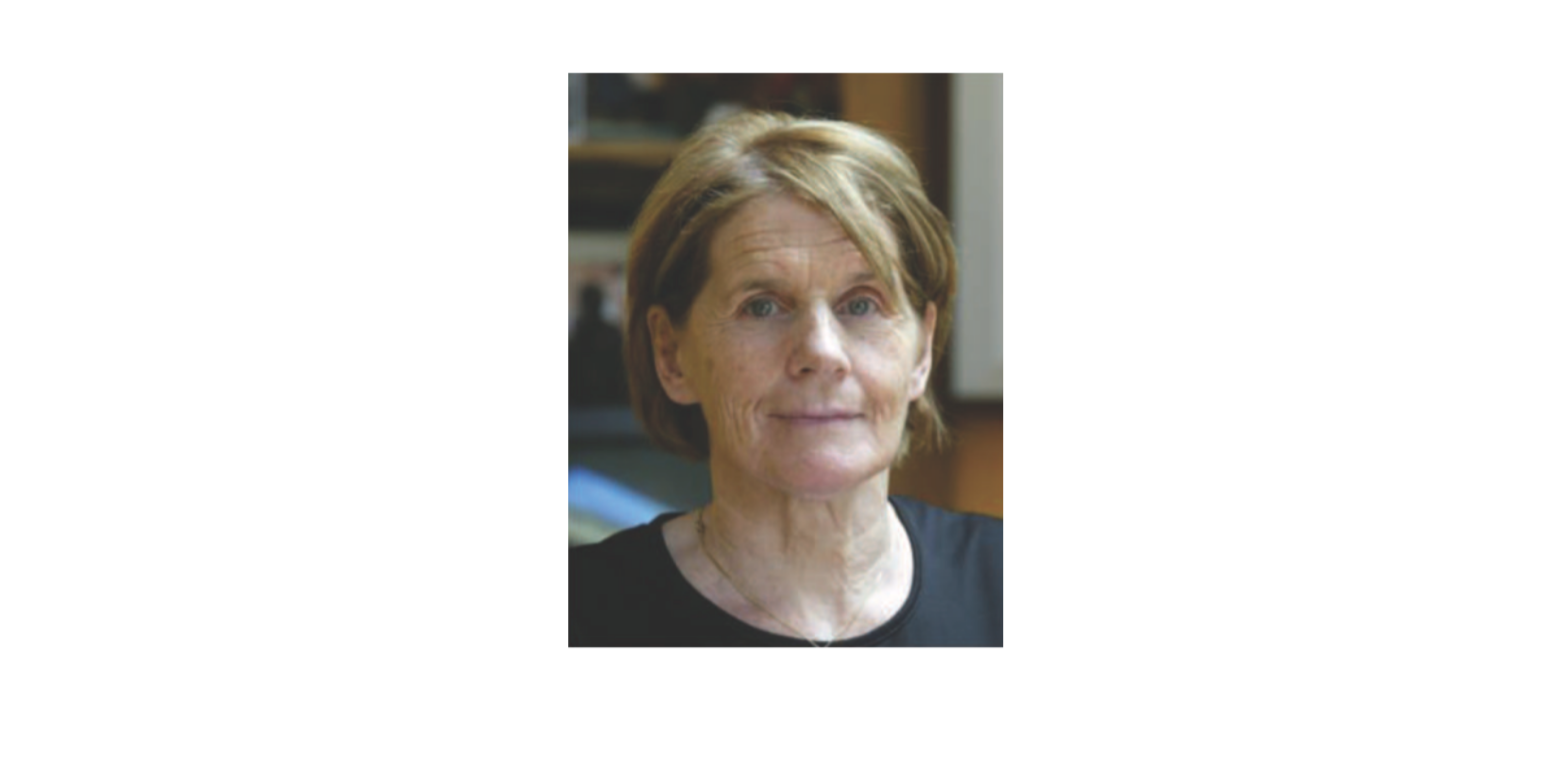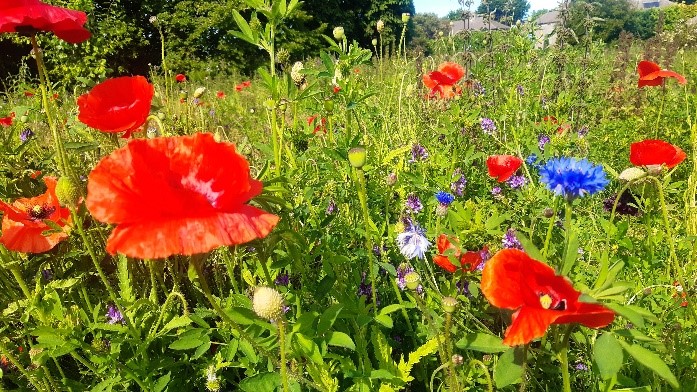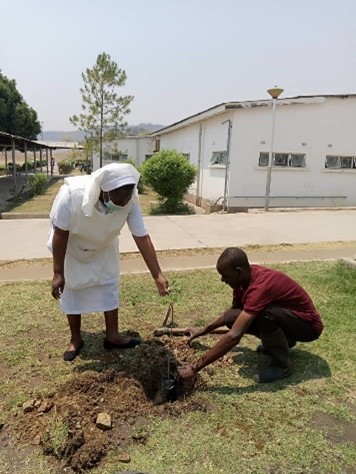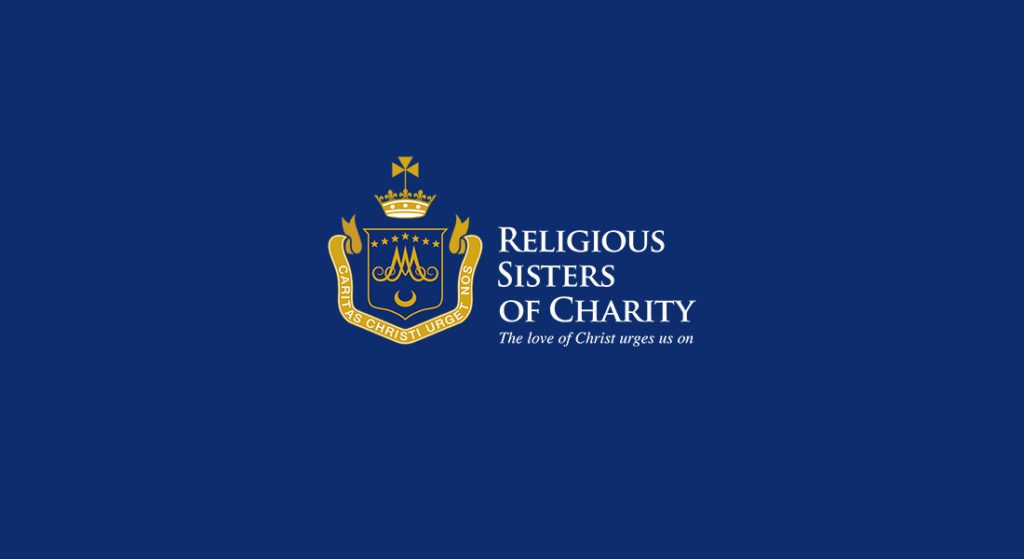
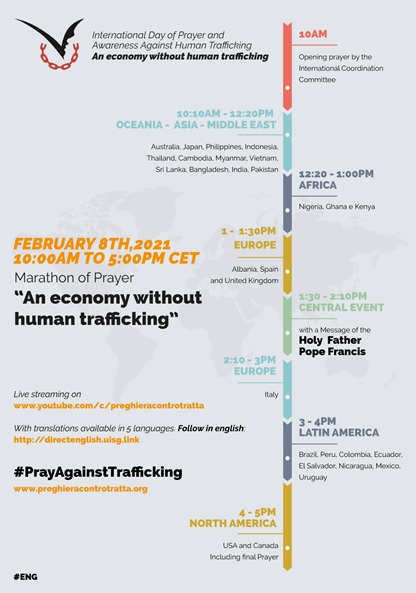 Every year, the 8th of February marks World Day of Prayer and Reflection Against Trafficking organized by Talitha Kum. The focus for this year is to reflect on ‘An Economy Without Human Trafficking‘. The worldwide celebration due to the ongoing Covid-19 pandemic will be marked on the day by an online event: ‘A Marathon of Prayer‘, and will take place between 9am to 4pm (GMT) / 10am to 5pm (CET) – A 7-hour long marathon in five languages, prayers and testimonies from international realities involved in the fight against human trafficking livestreamed on
Every year, the 8th of February marks World Day of Prayer and Reflection Against Trafficking organized by Talitha Kum. The focus for this year is to reflect on ‘An Economy Without Human Trafficking‘. The worldwide celebration due to the ongoing Covid-19 pandemic will be marked on the day by an online event: ‘A Marathon of Prayer‘, and will take place between 9am to 4pm (GMT) / 10am to 5pm (CET) – A 7-hour long marathon in five languages, prayers and testimonies from international realities involved in the fight against human trafficking livestreamed on
www.youtube.com/c/PreghieraControTratta
There will also be a moment of prayer all together at 12noon (GMT) / 1pm (CET). It will be attended by all the Talitha Kum networks around the world, divided into blocks according to continents. His Holiness Pope Francis will surprise us with a visit to join in prayer.
A Twitterstorm is also scheduled on the day, from 11:30am to 12:15pm (GMT) / 12:30pm to 13:15pm (CET) using the 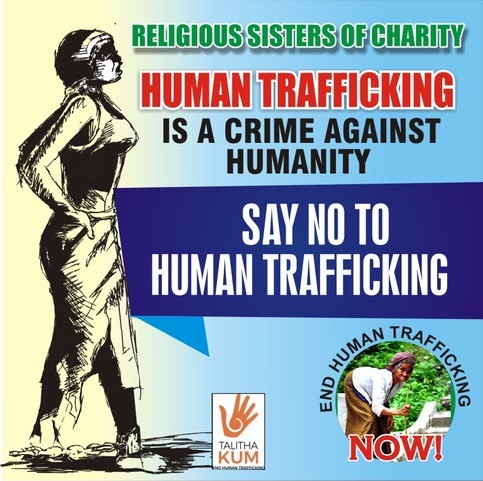 hashtag#PrayAgainstTrafficking. You are invited to participate in your own time zone with a few simple ideas which are suggested at sistersagainsttrafficking.org
hashtag#PrayAgainstTrafficking. You are invited to participate in your own time zone with a few simple ideas which are suggested at sistersagainsttrafficking.org
Religious Sisters of Charity throughout the world have been preparing for this day by participation in webinars, speaking at parishes and youth groups and creating new posters.
Significantly, Pope Francis chose the 8th of February as an annual day of prayer and awareness against human trafficking as the day simultaneously marks the ‘Feast Day of St. Josephine Bakhita‘, the patron saint of Sudan. Her life was a journey from slavery to freedom and faith.
St. Josephine Bakhita was born in a small village in West Sudan around 1869 to the Dajue tribe. At the age of 8 she was kidnapped by Arab slave traders who bought, sold and gave her away multiple times throughout a 12-year period.
During this time, her treatment varied from fair to cruel. Her first owner was a wealthy Arab, who had her working as a maid tending to his family, however she experienced a terrible beating after offending his son and was sold soon after.
It is documented that she suffered 114 scars from the beatings she endured by another Turkish owner’s wife and mother-in-law who beat her daily. The Turkish general sold her in 1883 to the Italian Vice Consul, Callisto Legani, a kind owner who she begged to take her with him to Italy on his return and he agreed.
Once back in Italy the Vice Consul sold her. Again, she was she was placed with a family who treated her more fairly and she worked as a nanny. When they had to travel overseas, they sent Josephine to The Institute of the Catechumens, run by the Canossian Sisters.
While in custody with the sisters she was deeply moved by her time there and refused to leave when her owner returned. This caused the superior of the institute for baptismal candidates among the sisters to complain to the authorities about Josephine’s behaviour. After the case going to court, they discovered that slavery in Sudan was outlawed before Josephine was born – finally she was declared free.
She was baptised in 1890 and took the name Josephine Margaret and Fortunata, she became a novice with the Canossian Daughters of Charity in 1893 and took her final vows in 1896. She was ultimately assigned to a convent in Schio, Vicenza. She devoted herself to promoting Catholic missions in Africa.
She was often noted for being gentle and charismatic and often referred to as ‘Little Brown Sister’ or honourably as ‘Black Mother’.
On the evening of February 8, 1947, Josephine spoke her last words, “Our Lady, Our Lady!”
After her passing her body was on display for three days.
The first steps toward her beatification began in 1959. She was beatified in 1992 and canonized eight years later in 2000 by Pope John Paul II.
Further Reading
Resources to study the impact of economies that drive human trafficking can be accessed here.
